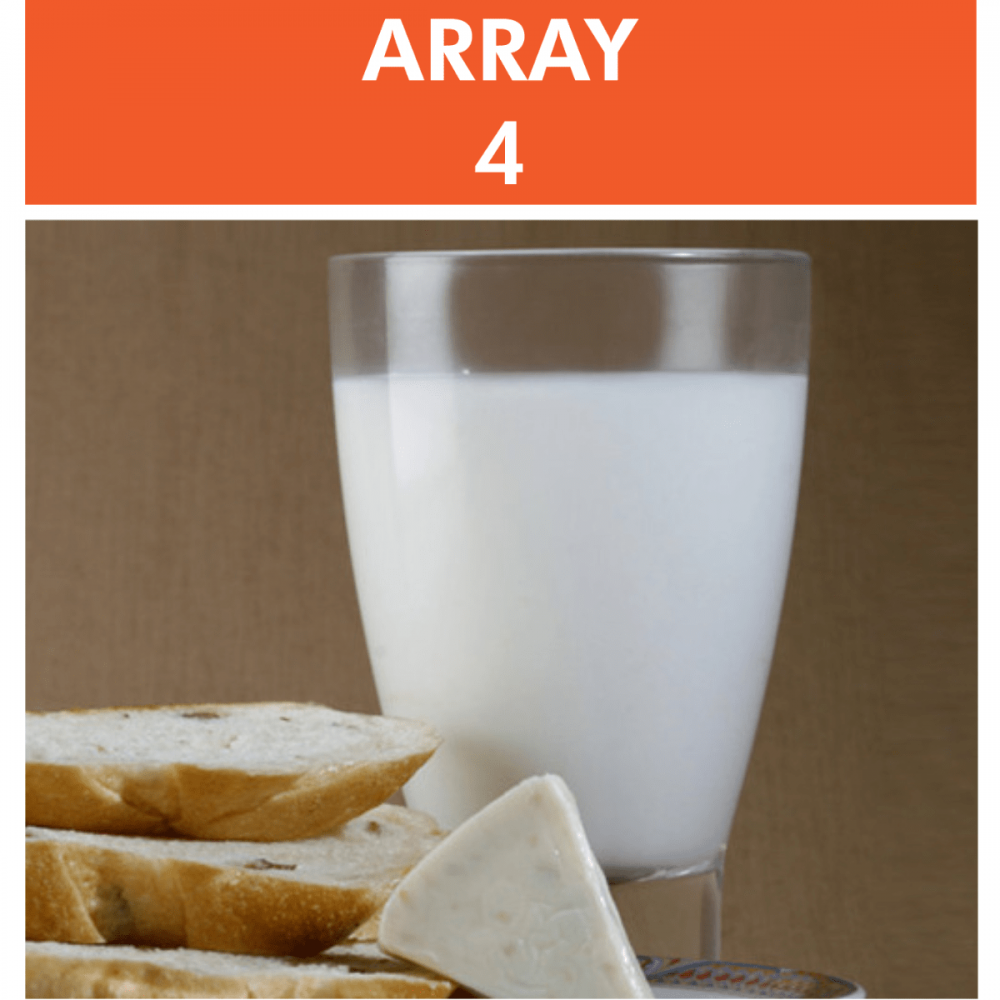
CGP - Array 4: Gluten-Associated Cross-Reactive Foods and Foods Sensitivity
- Rye, Barley, Spelt, Polish Wheat IgG + IgA Combined
- Cow’s Milk IgG + IgA Combined
- Alpha-Casein & Beta-Casein IgG + IgA Combined
- Casomorphin IgG + IgA Combined
- Milk Butyrophilin IgG + IgA Combined
- Whey Protein IgG + IgA Combined
- Chocolate (Milk) IgG + IgA Combined
- Oats IgG + IgA Combined
- Yeast IgG + IgA Combined
- Coffee IgG + IgA Combined
- Sesame IgG + IgA Combined
- Buckwheat IgG + IgA Combined
- Sorghum IgG + IgA Combined
- Millet IgG + IgA Combined
- Hemp IgG + IgA Combined
- Amaranth IgG + IgA Combined
- Quinoa IgG + IgA Combined
- Tapioca IgG + IgA Combined
- Teff IgG + IgA Combined
- Soy IgG + IgA Combined
- Egg IgG + IgA Combined
- Corn IgG + IgA Combined
- Rice IgG + IgA Combined
- Potato IgG + IgA Combined
One of the most frustrating scenarios for both the practitioner and the patient is when a gluten-free diet fails to have any effect on a person who seems so clearly gluten sensitive. Newer research shows this may be due to cross-reactivity.
In cross-reactivity, the body mistakes another food for gluten and reacts accordingly. Array 4 tests for 24 different foods that may be causing cross-reactivity or are newly introduced to the diet or over-consumed favorites.
Dairy – Cross-reactivity is common with dairy as its structure so closely resembles that of gluten. In fact 50% of people who are sensitive to gluten are also sensitive to dairy.
This panel has great clinical significance as it can explain why people still react even after giving up gluten and dairy.
Click Here to View Test Brochure
*Please read the following prior to placing your lab test order*
- All sales are final and no refunds will be afforded and you waive any rights to charge-back your purchase with your credit card processor.
- theDr.com does not participate in, take assignment, or accept any private insurance. We do not provide super bills and cannot assist with claim resolution for laboratory tests or consultations.
- Orders for this test are accepted form the United States Only. International Orders are not accepted for this test.
- TheDr.com is unable to ship test kits to the state of New York as per state laws.
- TheDr.com is unable to ship lab kits to P.O. boxes. Please use a residential or business address.
- Some lab providers fill out requisition forms ahead of time with client information. To avoid confusion when processing orders, if you are ordering lab kits for multiple people, please place a separate order for each person.
- After you order a test kit, getting the lab draw and/or completing the test is your responsibility.
- Once thedr.com has received your test results, the results will be uploaded to your HIPAA compliant client portal and you will receive an email instructing you how to access them.
- Cyrex Labs covers a flat rate with contracted labs for the phlebotomy services associated with their test kits requiring a blood draw. Depending on the location and lab, additional draw fees may be required.
- Once you have purchased your test, your requisition will contain the necessary information to schedule a blood draw here: https://www.cyrexlabs.com/PayformyTest/tabid/126/Default.aspx
- If you live in a remote location, you may need to travel a distance or ask your local physician or hospital to assist with phlebotomy.
- We recommend contacting the draw center and scheduling an appointment for your blood draw in advance.
- Please contact testing@thedr.com with questions.
Cyrex Laboratories is CLIA* certified and licensed in the state of Arizona. Cyrex participates in CAP (College of American Pathologists) surveys to assure quality procedures and regulatory compliance. Cyrex Laboratories follows the strictest federal guidelines for the development of its assays.
*Congress passed the Clinical Laboratory Improvement Amendments (CLIA) in 1988, establishing quality standards for all laboratory testing to ensure the accuracy, reliability, and timeliness of patient test results regardless of where the test is performed.
